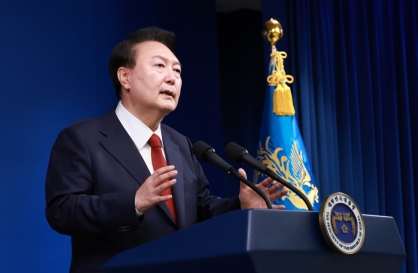The last U.S. troops left Iraq Sunday, eight years and eight months after the first American missiles struck Baghdad, ostensibly to stop Saddam Hussein from threatening world security with weapons of mass destruction.
The soldiers are returning home, but many of them will be sent to Afghanistan, where George W. Bush had started war to destroy al-Qaida, the perpetrators of the 9/11 terrorist attacks. When another Middle East invasion was made into Iraq, much of the non-Arab world supported the U.S. and trusted its claim on Iraq’s WMD program and connections with the terrorist organization.
Saddam Hussein was captured and executed after a trial. He was punished by the international community for human rights abuses on his people but not because of his weapons program or al-Qaida connections, of which no evidence was found. The international society was reluctant to accept U.S. claims of spreading democracy to the Arab world as an excuse for the war, which killed almost 4,500 Americans and cost the lives of tens of thousands of Iraqi soldiers and civilians. An estimated 4.7 million Iraqis were displaced and millions of children became orphans. $1 trillion in U.S. taxpayers’ money was spent on the war.
Korea contributed the third largest expeditionary force, after the U.S. and the United Kingdom, to the coalition in 2004. Domestic public opinion on this was seriously divided but many here considered it a fulfillment of Korea’s obligations under its military alliance with the U.S. Korea’s 3,000-strong Zaitun (Olive) Unit stationed in the northern region of Arbil fortunately suffered no combat losses until it withdrew in 2008.
A fragile democracy is left behind in the country after the departure of the Americans and no one can tell how it will develop in the future. If the Western world feels any responsibility for what the country is today, apart from attributing it to sectarian and racial divisions, they should make concerted efforts from now to help rebuild the nation, which has the world’s fourth largest oil deposits.
Now, full sovereignty in their hands, Iraq’s Shiites, Sunnis and Kurds should first renounce violence and start a process of compromise for power-sharing. The world history has many examples of successful national reconciliation from even worse circumstances.
The soldiers are returning home, but many of them will be sent to Afghanistan, where George W. Bush had started war to destroy al-Qaida, the perpetrators of the 9/11 terrorist attacks. When another Middle East invasion was made into Iraq, much of the non-Arab world supported the U.S. and trusted its claim on Iraq’s WMD program and connections with the terrorist organization.
Saddam Hussein was captured and executed after a trial. He was punished by the international community for human rights abuses on his people but not because of his weapons program or al-Qaida connections, of which no evidence was found. The international society was reluctant to accept U.S. claims of spreading democracy to the Arab world as an excuse for the war, which killed almost 4,500 Americans and cost the lives of tens of thousands of Iraqi soldiers and civilians. An estimated 4.7 million Iraqis were displaced and millions of children became orphans. $1 trillion in U.S. taxpayers’ money was spent on the war.
Korea contributed the third largest expeditionary force, after the U.S. and the United Kingdom, to the coalition in 2004. Domestic public opinion on this was seriously divided but many here considered it a fulfillment of Korea’s obligations under its military alliance with the U.S. Korea’s 3,000-strong Zaitun (Olive) Unit stationed in the northern region of Arbil fortunately suffered no combat losses until it withdrew in 2008.
A fragile democracy is left behind in the country after the departure of the Americans and no one can tell how it will develop in the future. If the Western world feels any responsibility for what the country is today, apart from attributing it to sectarian and racial divisions, they should make concerted efforts from now to help rebuild the nation, which has the world’s fourth largest oil deposits.
Now, full sovereignty in their hands, Iraq’s Shiites, Sunnis and Kurds should first renounce violence and start a process of compromise for power-sharing. The world history has many examples of successful national reconciliation from even worse circumstances.
-
Articles by Korea Herald










![[K-pop’s dilemma] Time, profit pressures work against originality](http://res.heraldm.com/phpwas/restmb_idxmake.php?idx=644&simg=/content/image/2024/05/08/20240508050705_0.jpg&u=20240508171126)








![[Today’s K-pop] Stray Kids to drop new album in July: report](http://res.heraldm.com/phpwas/restmb_idxmake.php?idx=642&simg=/content/image/2024/05/09/20240509050659_0.jpg&u=)